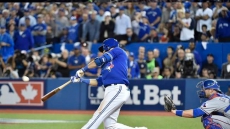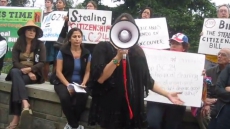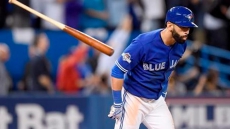OTTAWA — Politicians like to say that the only poll that counts is the one on election day.
But the 11-week federal campaign that concluded Monday night with a resounding Liberal majority helped illustrate the power and persuasion of public opinion surveys in assisting the public to its final verdict.
And after a series of embarrassing election survey miscues in recent years, it's fair to say the industry was breathing a collective sigh of relief Tuesday after getting Canada's 42nd general election right.
"I think it was a pretty good night and it's important for the industry to have a win," Paul Adams, a former pollster and journalist who now teaches at Carleton University, said in an interview.
"By and large in this election, their role was not destructive, it was illuminating."
Pollsters using widely diverging technology — from live telephone interviews to automated robocalls to online panels — all came remarkably close in the final weekend to nailing the exact outcome of the national balloting.
Out of more than 17.5 million ballots cast and counted, Elections Canada says Justin Trudeau's Liberals claimed 39.5 per cent of the popular vote in winning an absolute majority of 184 seats in the 338-seat House of Commons. The Conservatives finished with 31.9 per cent of the popular vote and 99 seats, while New Democrats earned 19.7 per cent of the vote and 44 seats.
Voter turnout was 69.49 per cent, seven points higher than the last federal election in 2011 and the best turnout since 1993.
That higher voter turnout may have helped pollsters' accuracy, since divining which survey respondents will actually show up to cast a ballot is one of the most vexing conundrums in predicting actual outcomes.
"I was marvelling at the fact that 17.5 million Canadians voted and most of these polls are samples of 1,000," said pollster Lorne Bozinoff of Forum Research. "Can you imagine a thousand people speaking for 17 million? But it did seem to work."

But polling over the 78-day campaign was about more than simply predicting the outcome. In a very real sense, the ongoing surveys helped drive and shape the bottom line.
NDP campaign operatives were alarmed when media stories at the beginning of October began chronicling a noticeable softening in the party's support, as measured by a number of different surveys. Liberals, by contrast, were acutely aware as the campaign began that, as the third-place party in a tight, three-way race, they were highly vulnerable to even the appearance of any minor slippage in the polls.
The election was always going to be about which opposition alternative could present itself as the vehicle to remove Prime Minister Stephen Harper's Conservatives from office.
Elly Alboim, the head of strategic communications at Earnscliffe Strategy Group, said polling had particular resonance in Canada's 42nd general election because of the overwhelming desire for change among two thirds of the electorate.
"You saw that once the polling established a gap or separation between the parties, it accelerated the gap because people started flocking to the default agent of change," said Alboim.
The bandwagon effect, which clearly helped the Liberals, is not a mark against election surveys, he said.
"If a large part of the country collectively reached the decision they were going to vote negatively this time — if the impulse was to get rid of Mr. Harper and his government —they have a right to do that, obviously. And the polling is the way they gauge who's the most appropriate person to vote for."
The crucial point is that in order to make a properly informed choice, the public needs reliably accurate polling data.
Adams pointed to Alberta's 2012 provincial election, B.C.'s in 2013, the last British and Israeli elections and last year's referendum on Scottish independence as examples of pollsters being spectacularly wrong — to the detriment of the entire industry.
Forum's Bozinoff said the polling industry is "aware there's a perception out there," even if he argues the knocks haven't all been earned.
"I think the industry this time took really careful care in making their predictions, and a lot of them were polling right into the (final) weekend because they didn't want to be caught out."

That last point is key, said Nik Nanos of Nanos Research.
Pollsters are often held up to an unfair standard, he said, because their media client requires a final election survey in time for its Saturday edition. However shifts in voter support increasingly take place in the final 72 hours of a campaign.
"We've seen the numbers change from Thursday to Friday to Saturday to Sunday," said the veteran pollster.
"In our experience, the Sunday numbers in every single election we have ever done polling in always capture the sentiment of election day, without exception."




